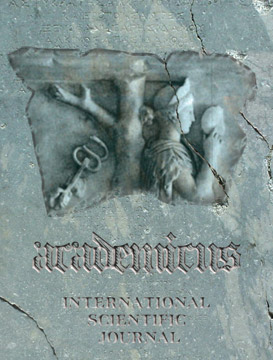Conflict is a costly endeavor. However, conflict itself is of unobservable magnitude which makes statistical inference problematic. The long-run economic cost of conflict is calculated as the sum of the contemporaneous costs and the discounted value of future costs. Typically, researchers use War or Militarized Interstate Conflicts as independent, discrete events to calculate its contemporaneous effect and then introduce a time binary variable to estimate the lagged effects since the end of the event. The conflict datasets accurately recognize the dates of the core conflict. However, they ignore the possibility that a lack of militarized conflict does not necessarily mean that issues have been settled, thus we are underestimating overall costs.
The present study estimates the economic costs of rivalry. The international rivalry cycle is a process in which a pair of states create and sustain a relationship of atypical hostility for some period. This paper is part of the renaissance of research activity in the applied economics of international trade. The gravity model is used to determine the economic cost of Rivalry on bilateral trade using panel data.
At the aggregate level, strategic and enduring rivalries have a negative and significant effect on trade flow. The results show that the total effect of rivalry accounts for48%-57% of the fall in bilateral trade volume, which is equivalent in cost to 19% of the ad-valorem tax. If the rivalry is disaggregated by claim type: spatial, positional, and mixed, then we observe that the cost varies substantially with the type. Spatial rivalry explains 16%-26% of the fall in trade volume, while positional and mixed rivalry explain 49%-57% and 77%-82%, respectively.
Academicus International Scientific Journal is an Open Access Journal. This means that all content is freely available without charge to the user or his/her institution. Users are allowed to read, download, print, search, or link to the full texts of the articles in this journal without asking prior permission from the publisher or the author. This is in accordance with the BOAI definition of open access. Users are obliged to cite the source (Academicus International Scientific Journal) and the author, according to the international citation standards.
Academicus
International Scientific Journal
pISSN 2079-3715
eISSN 2309-1088
Address:
Sheshi i Flamurit, Rruga Muze
Al-9401 Vlorë, Albania
Tel: +355 68 60 60 555
info@academicus.edu.al
https://academicus.edu.al



 Scholar
Scholar
 Crossref
Crossref
